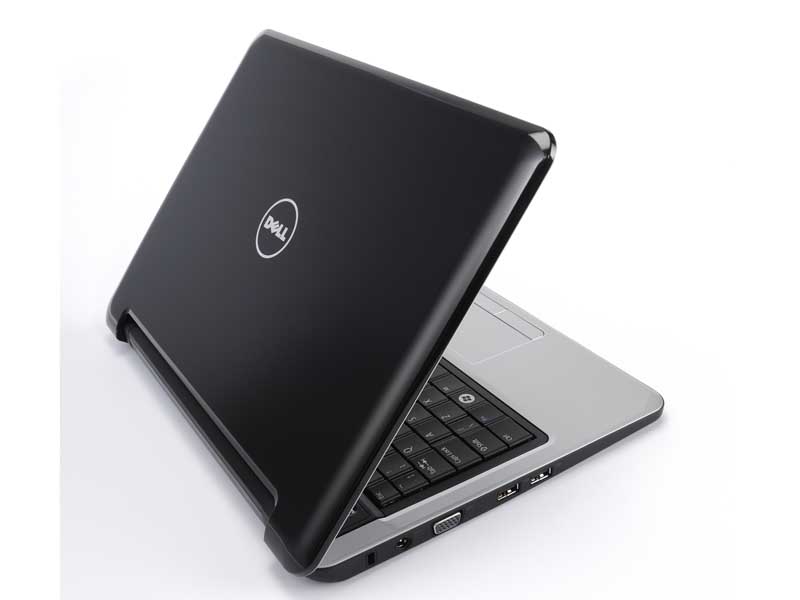Why Windows is winning the netbook war
Opinion: Linux had the netbook market to itself. What happened?

In the beginning, there was the Asus Eee PC. And the masses looked at it, and they found that it was good. Verily, they said, this Linux thingy isn't half bad.
And there was much rejoicing in the land of the penguin, for Linux had the market all to itself. A pox on all your houses, Microsoft, cried the penguin lovers. We have found a category in which you cannot compete! Your Vista is too bloated! Your XP is too dead!
Aha! Said Microsoft. We will resurrect Windows XP and give Vista a child, which will not be rubbish, and which will be pretty nifty on a netbook! Screw you, hippies!
"Lo!" said Henry Lee of Acer Computer Australia. "Our Windows XP netbooks are outselling Linux machines by more than 9 to 1! That's pretty much the case both in Australia and worldwide!"
And the penguin lovers looked, and they saw that it was true, and they wept.
Linux is an excellent operating system, but on netbooks it's gone from hero to zero in an incredibly short space of time. We can blame Microsoft for some of that - the hasty resurrection of XP along with attractive licensing deals has certainly persuaded manufacturers to offer XP and Windows 7 is specifically targeting the netbook niche - but there's more to it.
Linux was able to carve itself a niche because of a very temporary state of affairs. A year ago, netbooks couldn't run Windows. Now, they can and, despite the price difference (otherwise identical netbooks are more expensive if you plump for XP over Linux), Windows is what customers want.
Sign up for breaking news, reviews, opinion, top tech deals, and more.
It's all rather ironic. Vista was widely and rightly mocked for coming in too many confusing flavours, but on netbooks Microsoft is the one selling simplicity. The choice isn't seven versions of Vista versus one Linux: it's Windows XP versus a whole bunch of different distributions.
Remember, we're talking about ordinary people buying computers here, and we're expecting them to choose between not just one unknown operating system, but several: Linpus Lite (Acer), Ubuntu (Dell), a customised Xandros (Asus) and SUSE (MSI, HP et al).
The differences may be obvious to hardcore Linux evangelists, but do you think the average underpaid assistant in PC MegaBargainLand knows his Asus OS from his Eee OS? Because if he doesn't, you can be certain that the customers will be even more in the dark - and that means they'll stick with what they know.
Today's netbook market looks just like the rest of the PC market. People who know their way around Linux, or don't mind mucking about with their systems run Linux. People who don't care, don't have the time and think rebuilding a kernel is something from the Six Million Dollar Man just want to get online or bash out a letter. And for that, they're quite happy with Windows.
To an extent, open source scored a bit of an own goal when OSS turned up on Windows, because it delivers many of the benefits of Linux without the Linux bit. Worried about insecure web browsing? Yes, you could run Linux, or you could just install Firefox. Want an alternative to expensive, proprietary office software? Yes, you could run Linux, or you could just install OpenOffice.org. Fancy Photoshop but can't afford it? Yes, well... you get the idea.
Whether Linux is better than Windows isn't the point: it's that Windows plus a few open source programs or Google apps is good enough for most people. The majority of computer users aren't tech-savvy, don't care about the free software philosophy and have better things to do with their time than hunt for drivers, adjust to a new interface or replace all their favourite programs. So they stick with Windows on the desktop, and when it's time for another PC or a netbook, they'll stick with what they know.
The netbook numbers point to a bigger truth: when Linux is the only game in town, people use it and like it - but if you give them a choice between Linux and Windows, Windows always wins.
-------------------------------------------------------------------------------------------------------
Now read Windows 7: designed for a world in the cloud
Sign up for the free weekly TechRadar newsletter
Get tech news delivered straight to your inbox. Register for the free TechRadar newsletter and stay on top of the week's biggest stories and product releases. Sign up at http://www.techradar.com/register

Contributor
Writer, broadcaster, musician and kitchen gadget obsessive Carrie Marshall has been writing about tech since 1998, contributing sage advice and odd opinions to all kinds of magazines and websites as well as writing more than twenty books. Her latest, a love letter to music titled Small Town Joy, is on sale now. She is the singer in spectacularly obscure Glaswegian rock band Unquiet Mind.